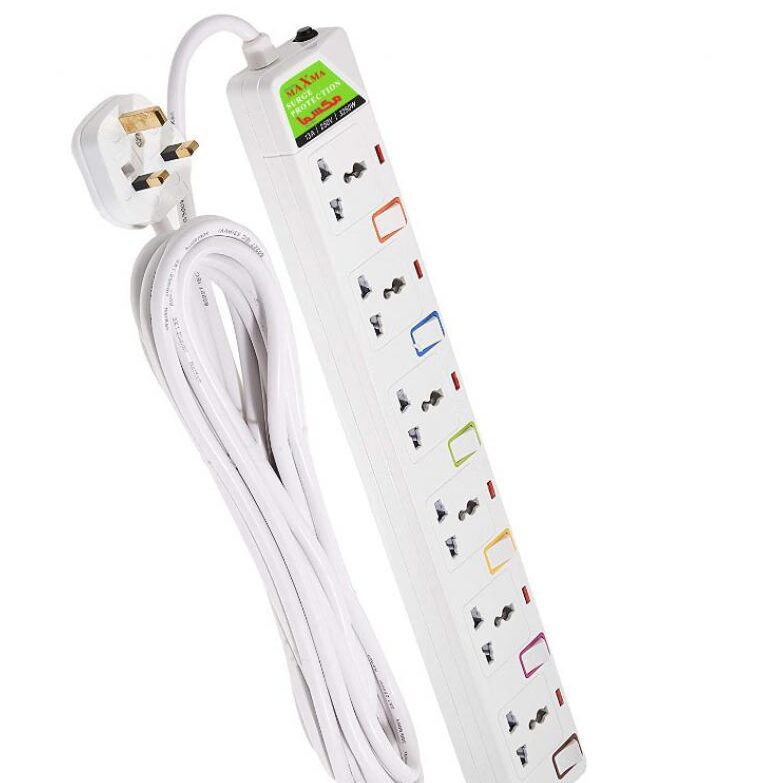Power Up Your World: A Full Guide to Picking the Best Extension Cord
When you reach for that outlet across the room, your charger cord needs to be longer. Extension cords are typically underappreciated, but they are about to become your closest allies. The abundance of options available on shop shelves may be overwhelming, making it seem like navigating through a labyrinth of choices. Do not be afraid! This complete guide will show you the way and help you choose the best extension cable for any case.
Making Sense of the Extension Cord Code: How to Understand Electricity Language
This critical measure tells you how far your power can reach. Think of it as an electric leash that lets your devices move quickly within its range. This number, which starts with “AWG,” shows how thick the wire is. Lower numbers, like 14 AWG, mean heavier wires that can handle more power. Higher numbers, like 18 AWG, mean thinner wires that are better for lighter jobs. Based on your device’s needs, make an intelligent choice.
To keep your charger from overheating, ensure the extension cord you choose has the correct number of plugs. Choose waterproof cords for outdoor use to prevent damage from the sun, rain, and other weather elements. Always put safety first! This safety feature protects your valuable gadgets from electricity spikes that could harm them. It’s like insurance for your devices, especially if they are expensive.
Getting the Extension Cord to Do the Job: Keeping Your Priorities in Mind.
A thin-gauge (18 AWG) cord with one or two outlets is all you need to power lights, phone chargers, and other low-wattage devices. You can think of it as a safe, everyday friend that gives you primary power without breaking the bank. A thick-gauge (14 AWG) wire with multiple outlets can handle tough jobs like running vacuums, power tools, or window AC units. It’s like having a strong helper that can do heavy work without getting too hot or breaking circuits. A waterproof extension cord with surge protection can light up your patio parties or power your outdoor tools. Think of it as your all-weather fighter, ready to protect your devices no matter the weather.
More Than the Basics: Extension Cord with extra tech features for tech-savvy users
The cords automatically shrink, making it easy to store and use without getting tangled. Flat-profile cords make it easier to get under rugs and reduce the chance of tripping. Use cords with features like voice control or planned power on/off to make your life easier. When you take care of your extension cords, they will last for years and years. Unplug cords when not in use to stop energy loss and heat building. Refrain from overloading wires by using more than what they are designed to handle.
Check wires often for damage or breaking; if you find any, replace them immediately. To keep your electronics safe from power spikes, use surge breakers. In conclusion, have confidence and power up. With this help, you can easily find the right extension cord for any case. Remember that the right cord isn’t just about being able to reach further; it’s also about safety, speed, and peace of mind. So, plug in with trust, knowing that you have the power to make the world a better place in a responsible way.
FAQs:
What kind of extension cord can I use for what?
The cord’s diameter and wattage rate should match the device’s power needs. Using a wire that isn’t rated properly could get too hot and start a fire.
Are cords that can be pulled back better than standard ones?
They make things easier and prevent tangles, but they may be thicker and less bendable. Choose based on how much space you need and how often you plan to use it.
Do I need to protect all of my electronics from power surges?
Basic surge safety might be enough for cheap gadgets, but it is helpful for expensive ones. Before choosing, consider how much fixing or replacing the item would cost.
How often do I need to get new extension cords?
Look for damage daily. To be safe, replace any cord with apparent damage, cracks, or loose links.
Are there any extension cords that are good for the environment?
Look for cords that are made from old things.

